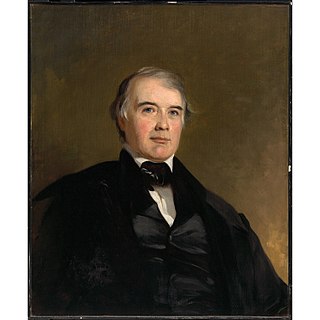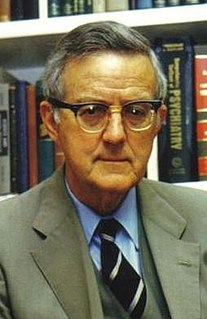A Quote by Jules Verne
Numerous observations made upon fevers, somnambulisms, and other human maladies, seem to prove that the moon does exercise some mysterious influence upon man.
Related Quotes
Of Cooking. This is an art of various forms, the object of which is to give ordinary observations the appearance and character of those of the highest degree of accuracy. One of its numerous processes is to make multitudes of observations, and out of these to select only those which agree, or very nearly agree. If a hundred observations are made, the cook must be very unhappy if he cannot pick out fifteen or twenty which will do for serving up.
Heidi Cullen had said that all of these local and cable weather forecasters who have been certified by the AMS, the American Meteorological Society, should be decertified if they refuse to accept the proven science of man-made global warming. There are numerous credible scientists, who have not been convinced that this is anything other than sunspot activity or normal cycles that the earth has gone through for billions and billions and billions and billions of years. Science can't prove man-made global warming, they simply can't, so they come up with this notion of consensus.
The astronomer is, in some measure, independent of his fellow astronomer; he can wait in his observatory till the star he wishes to observe comes to his meridian; but the meteorologist has his observations bounded by a very limited horizon, and can do little without the aid of numerous observers furnishing him contemporaneous observations over a wide-extended area.
Difficulties arise when reported observations seem to conflict with 'facts' that the majority of scientists accept as established and immutable. Scientists tend to reject conflicting observations.....Nevertheless, the history of science shows that new observations and theories can eventually prevail.
A man's physical hunger does not prove that man will get any bread; he may die of starvation on a raft in the Atlantic. But surely a man's hunger does prove that he comes of a race which repairs its body by eating and inhabits a world where eatable substances exist. In the same way, though I do not believe (I wish I did) that my desire for Paradise proves that I shall enjoy it, I think it a pretty good indication that such a thing exists and that some men will.
When one does another person an injustice, in some mysterious way it does one good to discover (or to persuade oneself) that the injured party has also behaved badly or unfairly in some little matter or other; it is always a relief to the conscience if one can apportion some measure of guilt to the person one has betrayed.
To place a man in a multi-stage rocket and project him into the controlling gravitational field of the moon where the passengers can make scientific observations, perhaps land alive, and then return to earth - all that constitutes a wild dream worthy of Jules Verne. I am bold enough to say that such a man-made voyage will never occur regardless of all future advances.
The thing we have to fear in this country, to my way of thinking, is the influence of the organized minorities, because somehow or other the great majority does not seem to organize. They seem to feel that they are going to be effective because of their own strength, but they give no expression of it.
From his observations, he concluded that it [Tycho's supernova] was not some kind of comet or a fiery meteor, whether these be generated beneath the Moon or above the Moon, but that it is a star shining in the firmament itself - one that has never previously been seen before our time, in any age since the beginning of the world.
The prophet who fails to present a bearable alternative and yet preaches doom is part of the trap that he postulates. Not only does he picture us caught in a tremendous man-made or God-made trap from which there is no escape, but we must also listen to him day in, day out, describe how the trap is inexorably closing. To such prophecies the human race, as presently bred and educated and situated, is incapable of listening. So some dance and some immolate themselves as human torches; some take drugs and some artists spill their creativity in sets of randomly placed dots on a white ground.
Mother, recently I have discovered the one way in which human beings differ completely from other animals. Man has, I know, language, knowledge, principles, and social order, but don't all the other animals have them too, granted the difference of degree? Perhaps the animals even have religions. Man boasts of being the lord of all creation, but it would seem as if essentially he does not differ in the least from other animals. But, Mother, there was one way I thought of. Perhaps you won't understand. It's a faculty absolutely unique to man - having secrets. Can you see what I mean?







































